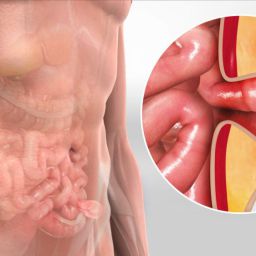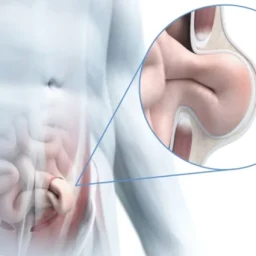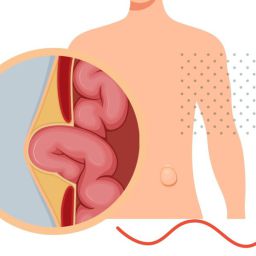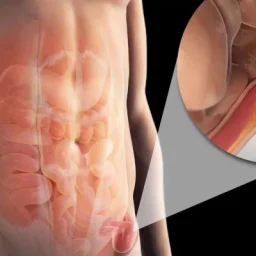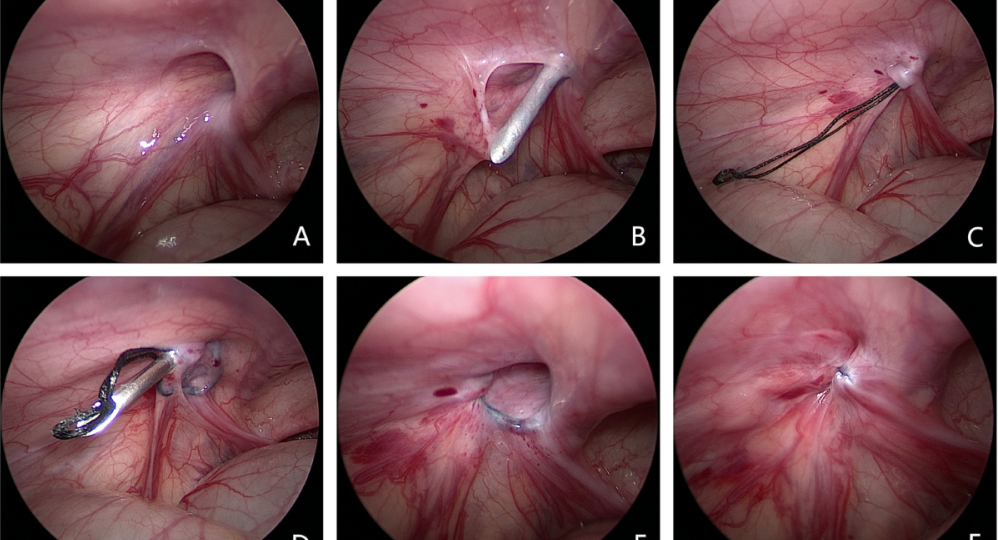
What is an Inguinal Hernia?
Before diving into the causes, let’s briefly explain what an inguinal hernia is. An inguinal hernia occurs when a part of the intestine or abdominal tissue protrudes through a weakness or opening in the abdominal wall in the inguinal canal. The inguinal canal is a passage in the lower abdomen through which the spermatic cord (in men) or the round ligament (in women) passes. It is a potential area for weakness, making it a common site for hernias to occur.
Main Causes of Inguinal Hernia
1. Increased Abdominal Pressure
One of the primary causes of inguinal hernias is increased pressure within the abdomen. This pressure can force an organ or tissue to push through a weakened part of the abdominal wall. Some common situations that increase abdominal pressure include:
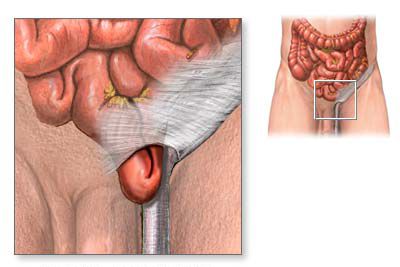
- Straining during bowel movements: Constipation, which leads to excessive straining, can put a lot of pressure on the abdomen.
- Heavy lifting: Lifting heavy objects, especially incorrectly, can significantly increase intra-abdominal pressure, leading to herniation.
- Coughing: Chronic coughing from conditions like smoking, asthma, or respiratory infections can increase pressure in the abdomen.
- Obesity: Excess weight adds continuous pressure to the abdominal wall, contributing to the development of hernias.
2. Congenital Weakness in the Abdominal Wall
Some individuals are born with a weakness in their abdominal wall, which can make them more prone to developing an inguinal hernia later in life. This congenital weakness may not always be apparent at birth but can manifest as the individual grows older.
- Fetal Development: During fetal development, the inguinal canal typically closes up as the body matures. If this closure is incomplete or there are defects in the abdominal wall, it can lead to the formation of a hernia later in life.
3. Age-Related Muscle Weakness
As people age, the muscles and tissues in the body naturally weaken, and this includes the abdominal muscles. With weakened muscles, there is an increased likelihood that tissues or organs could push through the abdominal wall, leading to an inguinal hernia. Older adults, especially those over the age of 50, are more susceptible to developing inguinal hernias.
4. Previous Hernia Surgery
A history of hernia surgery can also predispose a person to develop another hernia, especially if the surgical site did not heal correctly or if there is weakness in the area where the hernia was repaired. Scar tissue or complications during healing can leave areas vulnerable to future herniation.
5. Pregnancy
Pregnancy is another factor that can lead to inguinal hernias, particularly in women who have had multiple pregnancies. During pregnancy, the growing uterus increases abdominal pressure, which can weaken the abdominal muscles and make hernia development more likely. Additionally, hormonal changes during pregnancy can affect the elasticity of tissues, further increasing the risk.
Factors That Influence the Development of Inguinal Hernia
In addition to the main causes, several other factors can contribute to the likelihood of developing an inguinal hernia. These factors may not directly cause the hernia but can certainly increase the risk.
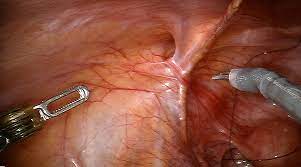
1. Gender
Gender plays a significant role in the development of inguinal hernias. Men are much more likely to develop inguinal hernias than women. This is because the male inguinal canal is naturally larger and more prone to weakness due to the passage of the spermatic cord. Furthermore, men often engage in activities like heavy lifting or physical labor, which increases the chances of developing a hernia.
2. Family History
A family history of hernias can increase the likelihood of developing an inguinal hernia. If a close family member has had a hernia, especially if it occurred at a young age, you may be more likely to develop one as well. Genetic factors can influence the strength and elasticity of abdominal tissues, making them more prone to weakening.
3. Chronic Health Conditions
Certain chronic conditions can increase the risk of developing an inguinal hernia. These include:
- Chronic cough: As mentioned earlier, chronic coughing puts pressure on the abdominal muscles and can lead to hernia formation.
- Chronic constipation: This can result in straining during bowel movements, a significant risk factor for developing an inguinal hernia.
- Cystic fibrosis: This genetic condition can result in respiratory problems, which contribute to chronic coughing and an increased risk of hernia.
4. Lifestyle Choices
Certain lifestyle factors can increase your risk of developing an inguinal hernia:
- Smoking: Smoking impairs tissue healing and weakens muscles, contributing to hernia development.
- Diet and Nutrition: A poor diet can lead to obesity, which increases abdominal pressure and contributes to hernia formation.
- Physical Activity: Inadequate or excessive physical activity can both increase the risk. A lack of regular exercise leads to weak abdominal muscles, while excessive heavy lifting can strain the abdominal wall.
5. Other Risk Factors
- Premature Birth: Babies born prematurely are at higher risk of developing hernias, especially inguinal hernias. This is due to underdeveloped muscles and tissues at birth.
- Male Infants: Male infants are at higher risk of developing inguinal hernias, particularly because of the anatomical difference in the inguinal canal between males and females.
Prevention and Treatment
Prevention Tips
While some risk factors for inguinal hernia, such as genetics or age, cannot be controlled, many are preventable or manageable. Here are some strategies for reducing the risk of developing an inguinal hernia:
- Maintain a Healthy Weight: By keeping your weight in check, you reduce the strain on your abdominal muscles.
- Avoid Heavy Lifting: Always lift with your legs, not your back, and avoid lifting objects that are too heavy.
- Treat Constipation: Eating a fiber-rich diet, drinking plenty of fluids, and staying active can help prevent constipation and the associated straining.
- Quit Smoking: Smoking weakens tissues and increases the risk of hernia formation, so quitting can reduce this risk.
- Exercise Regularly: Regular exercise strengthens abdominal muscles, reducing the risk of weakness and herniation.
Treatment of Inguinal Hernia
If you suspect that you have an inguinal hernia, it’s essential to seek medical attention promptly. Treatment options typically involve surgical repair, which is highly effective. There are two main types of surgery for inguinal hernia repair:
- Open Hernia Repair: A single incision is made, and the herniated tissue is pushed back into place. The abdominal wall is then reinforced with mesh or sutures.
- Laparoscopic Hernia Repair: A minimally invasive procedure where small incisions are made, and a camera is used to guide the surgeon as they repair the hernia.
In some cases, if the hernia is small and not causing significant symptoms, doctors may recommend a watch-and-wait approach, especially in older adults who may have other health considerations.
Inguinal hernia is a condition that can arise from a variety of causes, including increased abdominal pressure, congenital weaknesses, and age-related muscle weakening. Many factors can contribute to the development of an inguinal hernia, and understanding these causes and risk factors can help in prevention and early intervention. If you experience symptoms such as a bulge in the groin area, pain, or discomfort, it’s important to consult a healthcare professional to determine the best course of action.
Remember, although inguinal hernias are common, they are treatable, and with proper medical care, most people recover fully and return to their normal activities.

